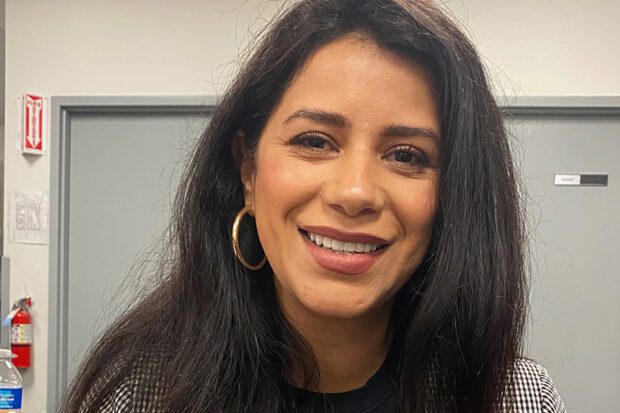
House Republicans have greenlit a proposal that will cut the Medicaid budget by a staggering $880 billion, effectively eliminating access to public healthcare for the vast majority of low-income people.
On May 21, conservative representatives—who make up the majority in the House—passed the budget reconciliation bill. This legislation constitutes a radical rollback of vital environmental protections, social safety nets and economic opportunities.
This vote is an attack on public health, food security and the economic stability of low-income and working families. The House also has opted to drastically cut the tax incentives for clean energy established in the Inflation Reduction Act; expand oil, gas and mineral extraction on public lands; and impose severe restrictions on vital programs our families depend on, such as Medicaid and child nutrition programs.
Furthermore, the bill delays the implementation of the methane pollution fee, a crucial measure designed to hold major emitters accountable for their air pollution.
This is part of the Trump administration’s plan that includes mass layoffs of federal employees, the elimination of the Department of Education, the reduction of the functions of the Department of Health and Human Services, mass deportations of immigrants and refugees (primarily those with dark skin), tax increases on imported goods and so on.
In other words, a plan aimed at benefiting corporations and the wealthy to the detriment of the well-being and health of the general population.
Different sectors of the population are responding to these arbitrary measures. On April 30, community representatives gathered at the Bakersfield American Indian Health Project to provide information on the effects of public health cuts.
Tara Gray with the Bakersfield American Indian Health Project explained that 70% of their patients receive Medi-Cal—California’s version of Medicaid. Approximately 24,000 Native Americans live in the region, “victims of serious health disparities that will be exacerbated by Medicaid cuts.”
Gray called for pressure on Rep. David Valadao (R–Hanford) to reject the proposed Medicaid funding cut. Congressional District 22, Gray stated, has the highest number of Medicaid recipients in the country: 65%. It is one of the poorest districts in the United States. “This proposal is a direct attack on our community,” Gray concluded.
“Because of my condition, I depend on Medicaid,” said Ulises Hernández, a Los Angeles native who has lived in Bakersfield for several years. He suffers from thrombocytopenia absent radius syndrome (TAR), a rare condition that has confined him to a wheelchair since he was a child. “Medicaid also supports me with medications and treatment…If I stop receiving this aid, I don’t know what I’ll do.”
These cuts will have an impact on society as a whole. “Those affected will end up going to emergency rooms for treatment of their illnesses,” said Joy Dockter, a staff attorney at the Western Center on Law and Poverty.
“Illness will increase…And sick people don’t produce and consume less. I wouldn’t doubt that many hospitals would have to close.”
For Devon Newton, the father of a two-year-old son with spina bifida, Medicaid assistance is crucial for his treatment. “The system helps us survive. I don’t understand those who want to eliminate this aid.
“Who do representatives and senators work for? They’re supposed to work for the people, right?”
He adds, annoyed, “They tell us we’re abusive people, that we receive government handouts…But it’s not true. It’s not charity, it’s aid, it’s justice.”
“Kern County residents can’t afford to lose Medicaid,” said Reyna Olaguez of Building Healthy Communities Kern. “My grandmother died from the consequences of diabetes; my father also suffered from it.
“Now the situation is better, more controlled thanks to access to public healthcare through Medicaid. We need more people who receive Medicaid to speak up. Valadao should hear these stories.”
Olaguez commented that her parents only got health insurance when they retired. “They went to Mexico to see a doctor because they couldn’t afford a clinic here. And they brought medicine from Mexico. We can’t go back to that situation.”
For Yuridia López, health promoter for Building Healthy Communities Kern, thanks to the recent expansion of Medicaid, many farmworkers have access to healthcare in California. The proposed reduction in Medicaid funding would be a severe blow to workers’ health.
“Many people were finally able to get medical checkups. And what do they see? They suffer from high blood pressure, diabetes…They could get treatment, but now it will be impossible.
“We’re going backwards. And so many children with asthma. Why? Because of the polluted air. They won’t be able to get treatment.
“We also won’t see an improvement in the mental health of our people; we need to increase support and funding.”
“We don’t need cuts to public health, we need more money for healthcare,” said Olaguez. “In Kern County, there are 34 doctors per 100,000 residents, compared to 64 doctors per 100,000 in San Francisco.
“We have a serious healthcare problem in the country, and low-income communities, communities of color, are the ones that suffer the most.”
Community representatives are urging the public to pressure their members of Congress and U.S. senators to oppose the Medicaid cuts.
June and July are important months because Congress will discuss versions of the proposal and possible modifications.
If the proposal is approved, it will be a serious setback for public healthcare, and even if the government changes in Washington, D.C., in the future, restoring lost services is not easy, and the time patients will not receive health services and treatment could be life-or-death for many.

